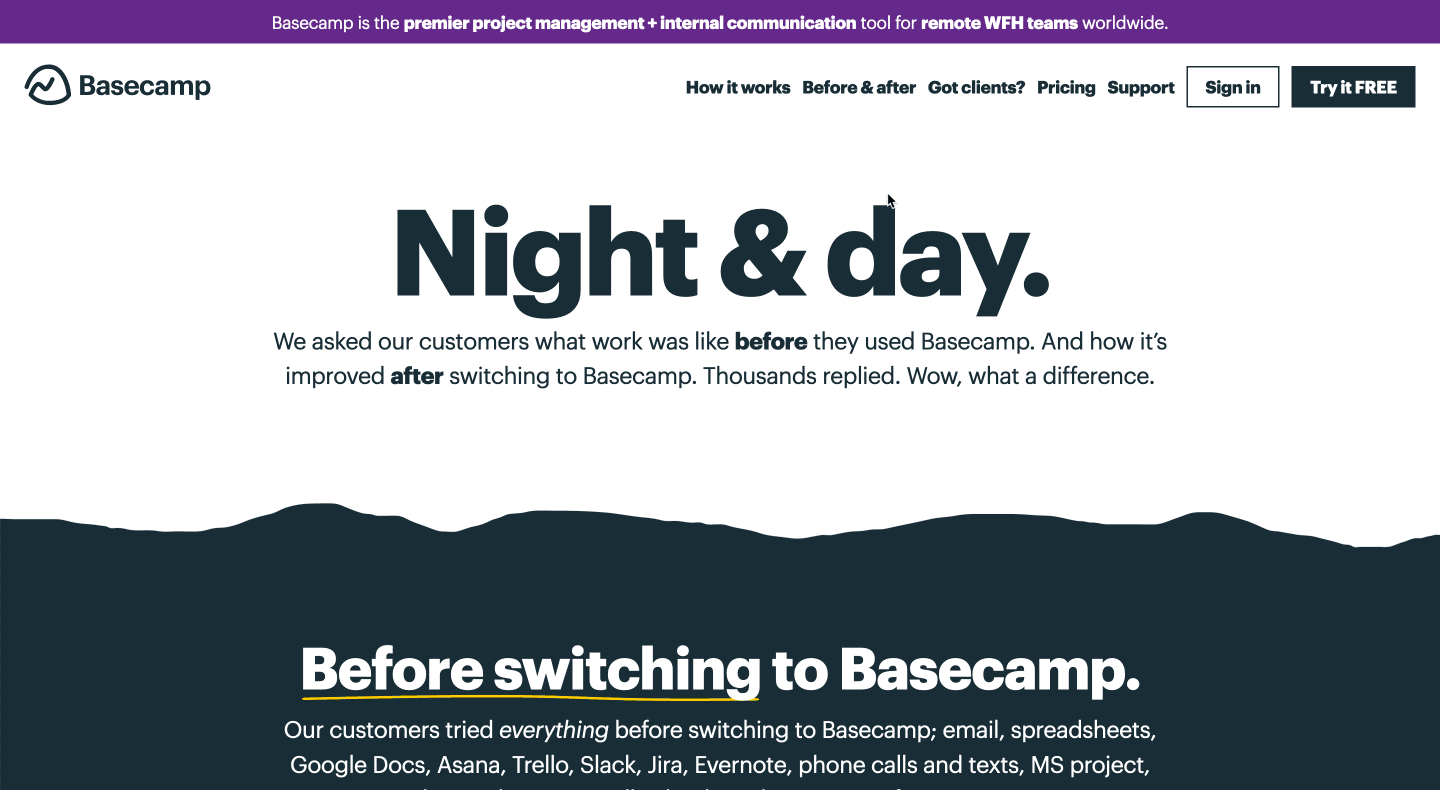If you want to pick up a marketing idea or two, look at what Basecamp does.
In particular, check out their Before and After page. On it, you’ll see dozens of testimonials.
But not just any testimonials. They focus on one thing: the transformation.
The transformation from life as it was before using Basecamp to life after switching to Basecamp.
And that’s where the magic happens.
Smart marketers know that the gold lies within the moment a prospect goes from consideration to purchase.
Sure, lots will happen before and after a purchase decision. But that “zero to one” moment matters a lot.
Basecamp’s Before and After page contains all the hallmark features of good testimonials, including:
- Actual customers’ natural language, like “Basecamp really helps us organize our unorganized employees”
- Jargon-free language customers actually use, like “…everyone is moving in the same direction”
- Emotionally charged words to evoke a feeling, like “Stressful, impossible, difficult, overwhelming” and “it felt like sitting in a wind tunnel”
- Unexpected benefits, like “It makes people feel like they are being heard”
- A range of customer demographics, including industry, gender, and company size
But the thing worth highlighting is the transformation.
The Observation: People don’t buy products and services. They buy outcomes. But in order to get there, a transformation needs to happen. Great testimonials don’t simply highlight the pain, problem, or expected result. They focus on the transformation that happens along the way.
Basecamp knows this and literally built a page that articulates this transformation.
They show people that not only is a transformation to better reality possible, but it’s also possible for people just like them.
When you’re selling something, focus on the transformation. It works the same way with testimonials.
Don’t focus on just the current problem. Or just the end result.
Highlight the transformation. The “zero to one” transition.
That’s where the juice is.
Parting quote:
The real question you need to ask is, “how do you want your customers to change?”—Seth Godin, Creative Mornings Talk
